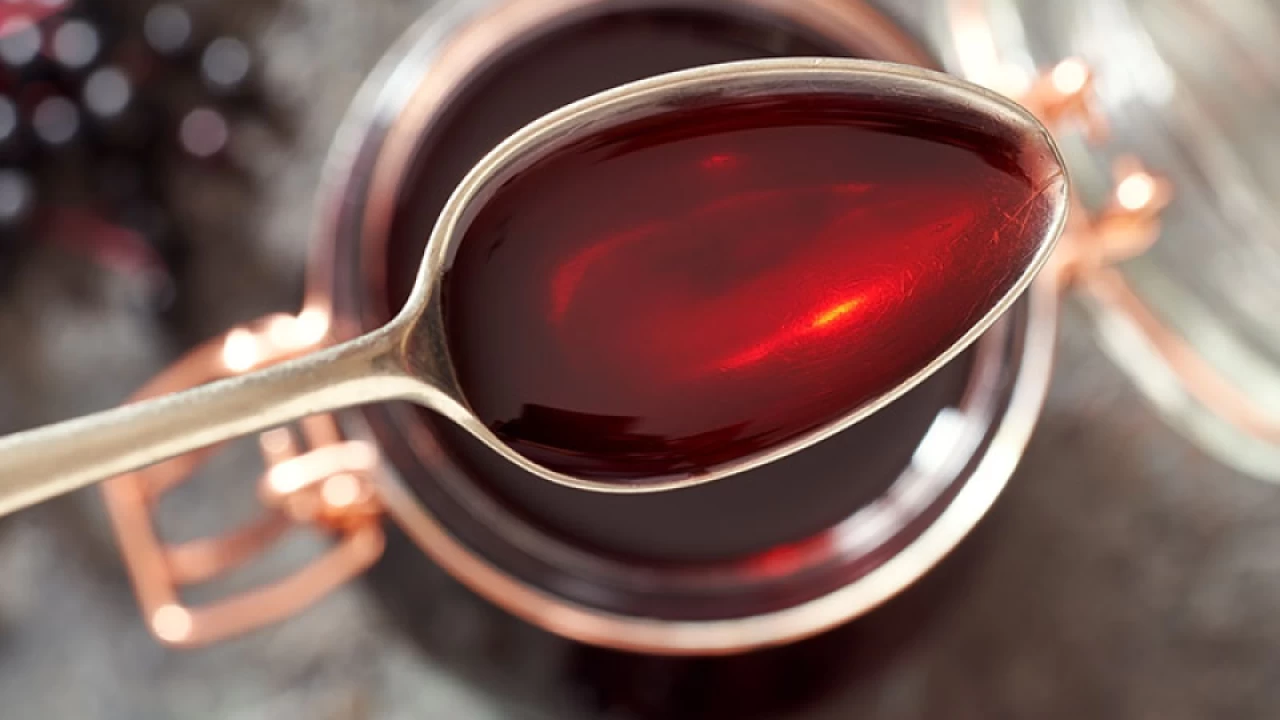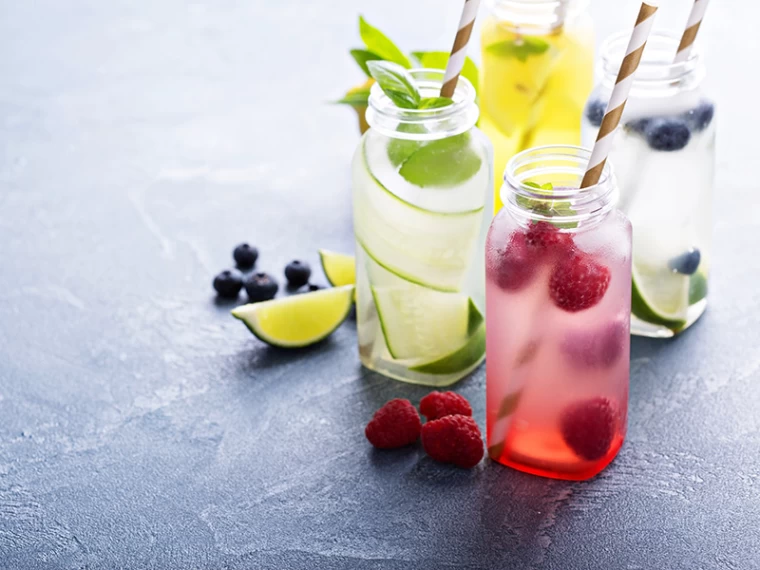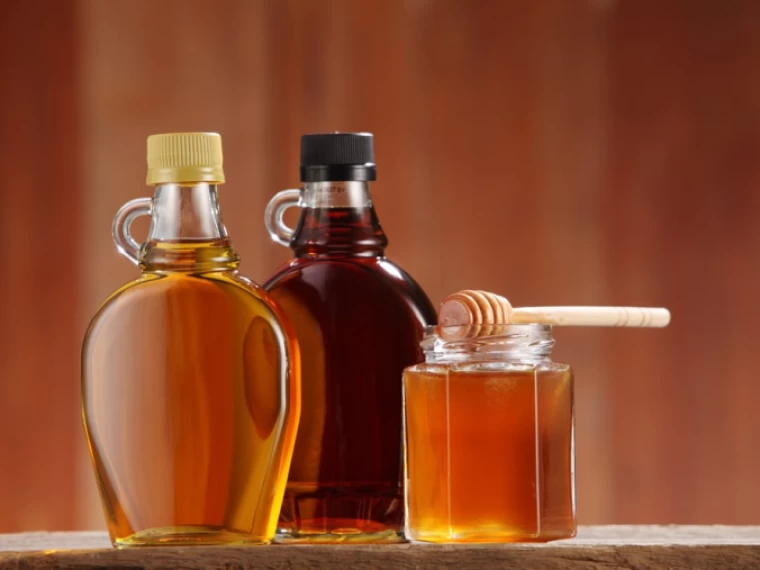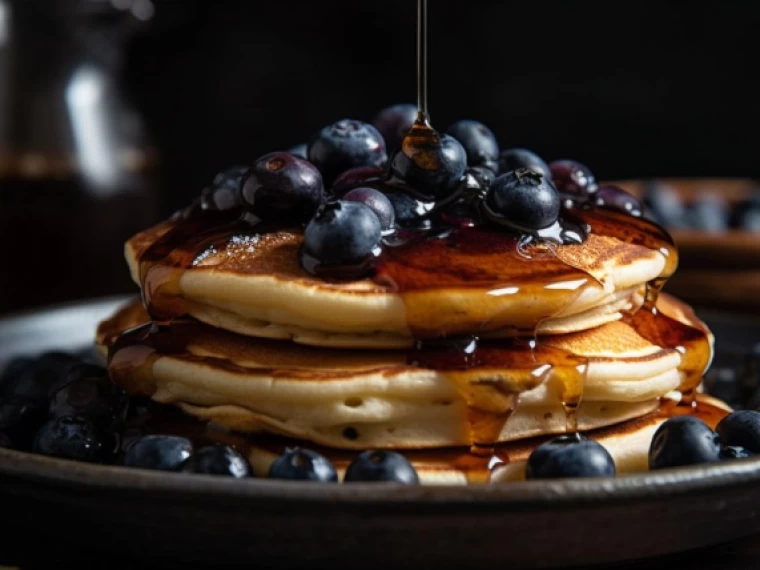Syrup and sherbet are two terms often used interchangeably, but they have significant differences in terms of ingredients, uses, and even production processes. In Persian, the word "sherbet" usually refers to a diluted drink with water and has medicinal or flavoring properties, while "syrup" mainly refers to a thick, sweetening liquid used in the food, pharmaceutical, and even beauty industries. In this article, we will explore the differences between the two from various aspects.
Definitions and Concepts of Syrup and Sherbet
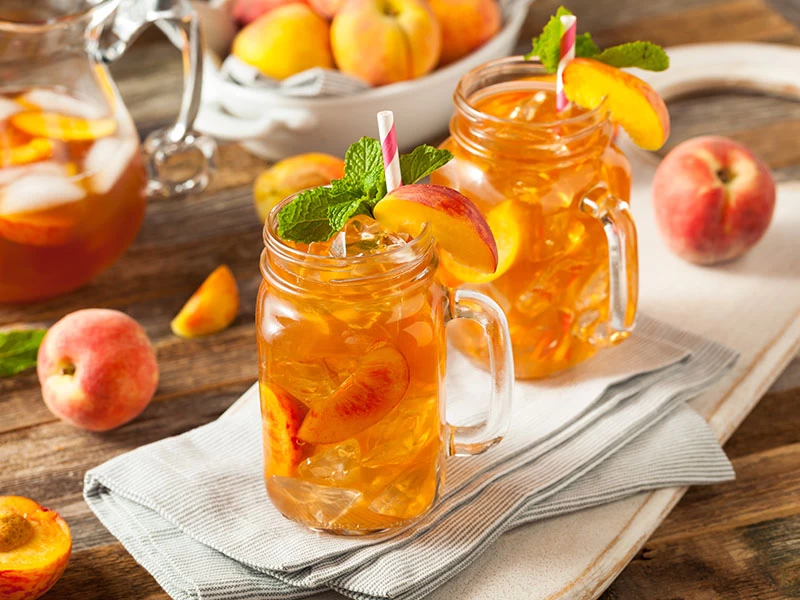
What is Sherbet?
Sherbet, in its general concept, is a water-based solution of sweetening agents (usually sugar or honey) combined with extracts of plants, fruits, or medicinal compounds, prepared for direct consumption or dilution with water. In traditional Iranian medicine and culture, sherbets have played an important role in treatment and quenching thirst. Some of the most famous traditional Iranian sherbets include:
- Saffron Sherbet
- Willow Water Sherbet
- Basil Seed Sherbet
- Lemon Balm Sherbet
Main Characteristics of Sherbet:
- Usually consumed diluted in water.
- Contains plant extracts, fruits, or medicinal ingredients.
- Sometimes has medicinal properties.
What is Syrup?
Syrup is a term used in the food and pharmaceutical industry to refer to a thick, sweet solution primarily used as a sweetener or flavoring agent. This substance can be based on sugar, glucose, fructose, or artificial sweeteners. Syrups are mostly used in the beverage, confectionery, and pharmaceutical industries.
Main Characteristics of Syrup:
- Has a thick and sticky consistency.
- Usually contains a high amount of sugar or artificial sweeteners.
- Used as an additive in beverages, desserts, and medicines.
Differences in Ingredients
Ingredients of Sherbet
Sherbets are made from ingredients that usually include:
- Water (as the main solvent)
- Natural sweeteners like sugar, honey, or plant-based sweeteners (like stevia)
- Extracts of plants, fruits, or spices
- Medicinal ingredients (if used for therapeutic purposes)
Sherbets are often a balanced combination of water and sweetening agents, which are less concentrated compared to syrups.
Ingredients of Syrup
Due to its industrial use, syrups usually consist of the following components:
- Glucose, fructose, or sucrose syrup
- Artificial or natural flavorings
- Preservatives to increase shelf life
- Thickeners like xanthan gum
As syrup is used as an additive, its ingredients are often more stable than homemade or natural sherbets.
Production Process
Production Process of Sherbet
Sherbet is typically made by extracting fruit or plant extracts, combining them with water and sweeteners, and sometimes heating to stabilize the ingredients. In homemade sherbet production, the following steps may be followed:
- Extracting or brewing plant extracts.
- Adding sugar or honey to the solution.
- Boiling to increase shelf life.
- Straining and bottling.
Production Process of Syrup
Due to the need for longer shelf life, syrups are usually produced through industrial processes. The general steps for producing syrup include:
- Mixing water with glucose or sugar at high temperatures.
- Adding artificial or natural flavorings.
- Using stabilizers to prevent crystallization.
- Pasteurization or adding preservatives to increase shelf life.
Uses
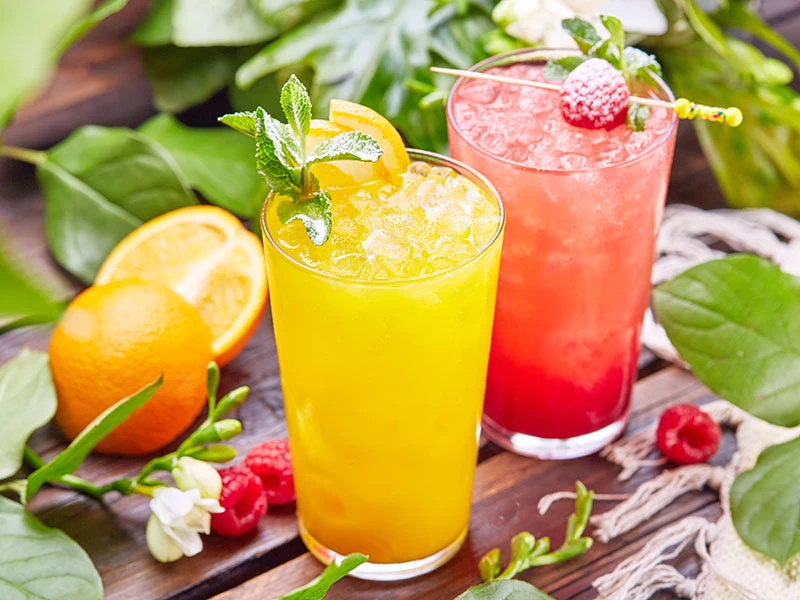
Uses of Sherbet
Sherbets are widely used in daily and medicinal applications. Some of the most common uses include:
- Homemade beverages (like lemon sherbet, chia seed sherbet)
- Herbal medicines (like cough syrup)
- Nutritional supplements (like multivitamin syrup)
- Cosmetic and hygiene products (like rosewater syrup)
Uses of Syrup
Syrups are mostly used in the food and pharmaceutical industries. Their main applications include:
- Sweeteners in beverages (like vanilla syrup, strawberry syrup)
- Additives to desserts and ice creams (like chocolate syrup, caramel syrup)
- Pharmaceutical industries (like cold syrup)
- Use in coffee shops and bartending (like coffee syrups)
Differences in Shelf Life
Shelf Life of Sherbet
Homemade or natural sherbets usually have a shorter shelf life as they lack preservatives. When stored in the refrigerator, herbal sherbets are typically usable for 2 weeks to 1 month.
Shelf Life of Syrup
Industrial syrups have a much longer shelf life due to the presence of preservatives and pasteurization processes, and they can last for several months or even years without a change in quality.
Comparison Table of Sherbet and Syrup
|
Feature |
Sherbet |
Syrup |
|
Definition |
A sweetened water solution with fruit, plant, or medicinal extracts, usually diluted with water. |
A thick, sticky sweet liquid used mainly as an additive in beverages and foods. |
|
Consistency |
Thinner than syrup, can be mixed with water. |
Very thick and sticky, usually consumed without dilution. |
|
Main Ingredients |
Water, sweetener (sugar, honey), fruit or plant extracts, medicinal ingredients (in medicinal syrups). |
Sugar, glucose, fructose, artificial or natural flavorings, preservatives |
|
Preparation Method |
Boiling plant and fruit extracts with sweeteners. |
Mixing sugar or glucose with water at high temperatures along with flavorings and preservatives. |
|
Applications |
Home use, medicinal, traditional beverages, herbal treatment. |
Additive in beverages, coffee shops, confectionery, desserts, food industry. |
|
Shelf Life |
Shorter, usually between 2 weeks to 1 month (in the refrigerator). |
Longer, between several months to years (at room temperature). |
|
Use in Coffee Shops |
Mainly as a base in traditional and homemade beverages. |
As a flavoring for coffee, tea, special drinks. |
|
Sweetness Level |
Usually milder and less than syrup. |
Very sweet, even a small amount has a strong flavor. |
|
Special Storage Needs |
Must be kept in the refrigerator. |
High shelf life at room temperature, no need for refrigeration. |
|
Famous Examples |
Saffron sherbet, willow water sherbet, sour cherry sherbet, cough syrup. |
Caramel syrup, vanilla syrup, chocolate syrup, strawberry syrup. |
Conclusion
Although both sherbet and syrup are sweetened liquids used in the food and pharmaceutical industries, they have significant differences in terms of composition, production process, application, and impact on health. Sherbets are more common in traditional culture, herbal medicine, and home use, while syrups have widespread applications in the food and pharmaceutical industries. The choice between the two depends on the consumer's needs and the intended use.
Frequently Asked Questions about the Differences between Sherbet and Syrup
- Do sherbet and syrup differ in taste?
Yes, sherbets usually have a more natural and milder taste because they are made from plant or fruit extracts. However, syrups have a stronger and sometimes more artificial taste due to the use of concentrated sweeteners and artificial flavorings.
- Can sherbet be used instead of syrup in recipes?
In some cases, yes, but due to the difference in concentration and sweetness, you may need to adjust the amount. Sherbet is usually thinner than syrup and may have a different effect on the texture and taste of the food.
- Is syrup the same as medicinal syrup?
No, syrups are generally used for flavoring foods and beverages, whereas medicinal syrup contains specific medicinal compounds used to treat illnesses.
- Are sherbet and syrup stored the same way?
No, natural sherbets usually need to be stored in the refrigerator and have a shorter shelf life, whereas industrial syrups contain preservatives and can be stored at room temperature for a longer period.
- Can homemade sherbet be made without sugar?
Yes, you can use natural sweeteners like honey or stevia to make healthier homemade sherbets.
- What is the difference between sherbet and syrup in the coffee shop industry?
In coffee shops, syrup is usually used as a flavoring for coffee, tea, and special drinks, while sherbets are mainly used for making traditional beverages or mixed with water.
- Are all syrups and sherbets plant-based?
No, some industrial syrups may contain artificial additives and chemical sweeteners, whereas herbal sherbets are completely made from natural plant and fruit extracts.

